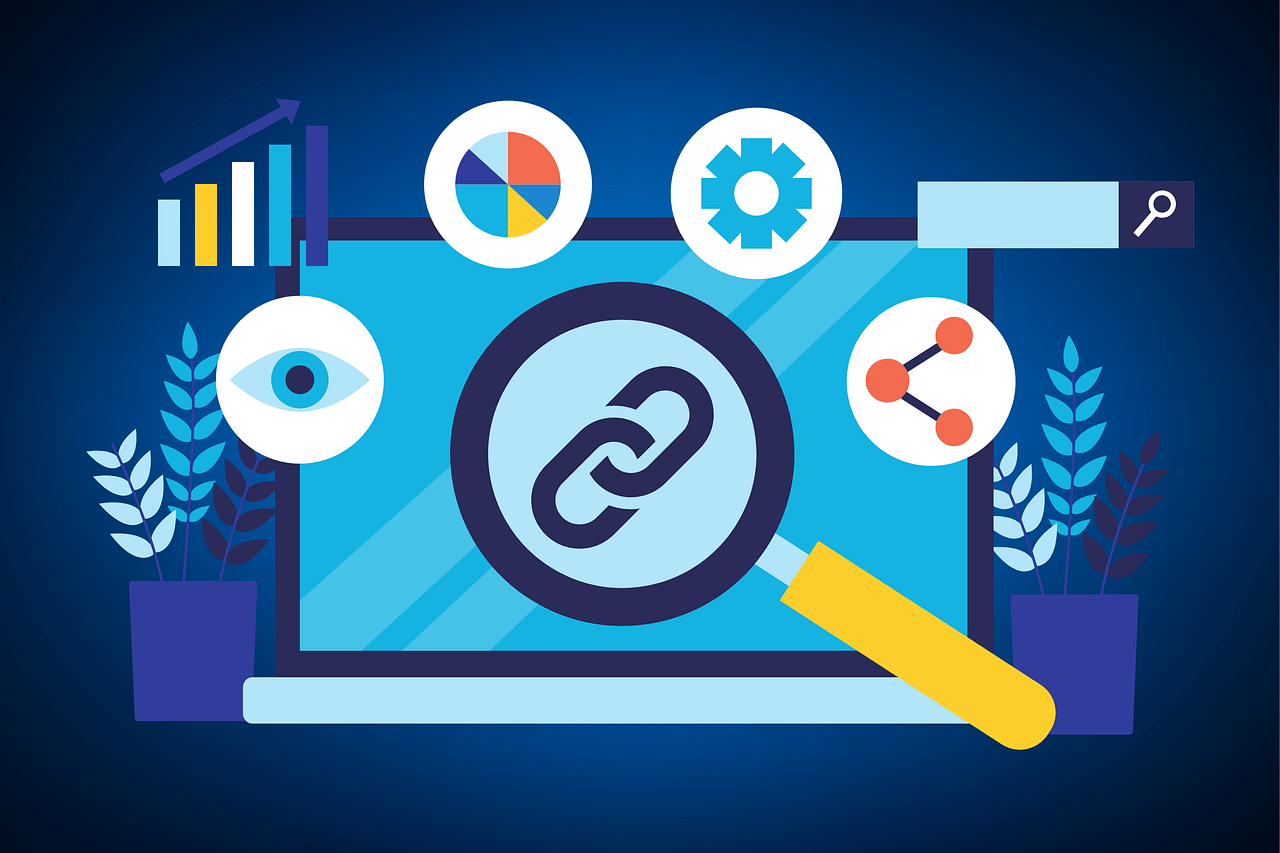How to Build High-Quality Backlinks for SEO

Building great backlinks is important in SEO or making your website show up better on search engines. Backlinks increase website traffic and communicate to search engines the value of your website.
You may raise the SEO of your website and create high-quality backlinks by following this approach.
1. Why Backlinks Are Important
Before talking about backlinks let’s understand why backlinks matter. Search engines are referred to by backlinks pointing to your content. When renowned websites connect to yours, engines like Google know that your content is credible.
This can make your website more well-known and visible in search results. Your top goal should be to have many good links because the number and quality of backlinks affect your website’s rating.
2. Checking Your Backlinks
First, look at your current links before making new ones. Use tools like Ahrefs or Moz to check your backlinks. See how many you have and if they’re related to your content.
This check will help you plan a good strategy. Understand where each link comes from, see how the words in the links are used, and find any bad links that should be removed.
Here is a possible step by step process to check your backlinks using Ahrefs:
- Log into Ahrefs and click on Site Explorer.
- Enter the domain or URL of your website and choose the appropriate mode (e.g., prefix, exact URL, etc.).
- Go to the Backlinks report on the left-hand menu to see all the pages that link to your target.
- Use the filters and sorting options to narrow down the results and find the most relevant backlinks for your analysis.
- You can also export the data to a CSV file or use other reports such as Referring Domains, Linked Domains, Best by Links, etc. to get more insights into your backlink profile.
3. Creating Shareable Content
Make content that others want to share to get good backlinks. Create material that meets your audience’s needs, gives new ideas, or solves problems.
Shareable content can help you get good backlinks, which are links from other websites to your own. Backlinks can improve your website’s ranking and visibility on search engines.
To make shareable content, you need to:
- Know your audience and their needs, interests, and preferences.
- Research the topics and keywords that are relevant and popular in your niche.
- Create original, engaging, and high-quality content that provides value to your audience and solves their problems.
- Use catchy headlines, images, videos, infographics, or other visual elements to attract attention and encourage clicks.
- Promote your content on various platforms and channels, such as blogs, newsletters, social networks, forums, etc.
- Encourage your audience to share, comment, and give feedback on your content.
Monitor your content’s performance and analyze the results.
4. Using Guest Blogging
A good way to get quality backlinks is by guest posting. Find reliable websites in your field that accept guest posts. Submit well-written, helpful articles with a link back to your work.
Guest blogging not only adds to your backlinks but also shows you as an expert. Build long-term relationships with trustworthy websites to get a steady flow of good backlinks.
5. Building Relationships for Backlinks
Make friends with other bloggers, influencers, and content creators for more backlink opportunities. Join online discussions, have debates, and work on projects together.
Real connections increase the chance that others will mention and link to your work. Actively look for chances to work together to grow your network, get noticed, and earn organic backlinks.
6. Using Social Media for Backlinks
Even if social media links don’t always count a lot, they still help your content be seen. Journalists and bloggers might find your shared info interesting and link to it.
Being active on social media can also lead to partnerships and mentions, giving you good backlinks. Encourage readers to share, join discussions, and tag your brand to increase visibility and linking.
7. Checking Backlink Success
Use tools to check how well your backlinks are working regularly. Watch how your link profile grows, see how backlinks affect people visiting your site, and check how they affect keyword rankings.
Adjust your strategy based on what you learn. Look at how many people from backlinks become customers. Focus on building links from sources that give you more exposure and help with your business goals.
8. Making Your Website Link-Friendly
To get more backlinks, make your website easy for others to link to. Use clear and simple URLs so people can share them easily. Add social sharing buttons on your pages, making it simple for readers to share your content.
When your site is link-friendly, it encourages others to link back to you, boosting your backlink profile. Here are some steps to follow:
- Choose between a static URL and a dynamic URL. Static URLs are more SEO-friendly and easier to read than dynamic URLs, which often contain parameters and symbols.
- Conduct keyword research to find the best words that describe your page content and match the user intent.
- Use the keywords to create a page title that is catchy and informative.
- Start optimizing your permalink by removing any special characters, numbers, or superfluous information from your page title.
- Include relevant breadcrumbs in your URLs to show the hierarchy and structure of your website.
- Test your URLs to ensure they don’t return a 404 error or redirect to another page.
9. Staying Updated with SEO Trends
Keep up with what’s new in SEO to stay ahead. Search engines change their rules, and it’s good to know about these changes. Follow trusted SEO blogs, watch videos, and attend webinars to stay updated.
Understanding the latest trends helps you adjust your strategy, ensuring your website stays strong in search rankings and continues to attract quality backlinks.
10. Avoiding Backlink Pitfalls
Be mindful of common mistakes when building backlinks to protect your website’s reputation. Some pitfalls include getting links from spammy websites, using the same anchor text too often, and neglecting the relevance of the linking site.
Be cautious about buying links, as search engines may penalize your site. By steering clear of these pitfalls and focusing on ethical backlink practices, you’ll maintain a positive online presence and enhance your SEO efforts for long-term success.
Conclusion
Making high-quality backlinks takes time and effort. Do audits, make friends, use social media, create good content, know why backlinks matter, and keep an eye on your success.
By doing these things, you’ll move up in search rankings, get more people to your site, and become a trusted expert in your field.
Sources:
https://backlinko.com/high-quality-backlinks
https://www.searchenginejournal.com/how-to-get-quality-backlinks/460802/
https://www.process.st/ahrefs-vs-moz/









